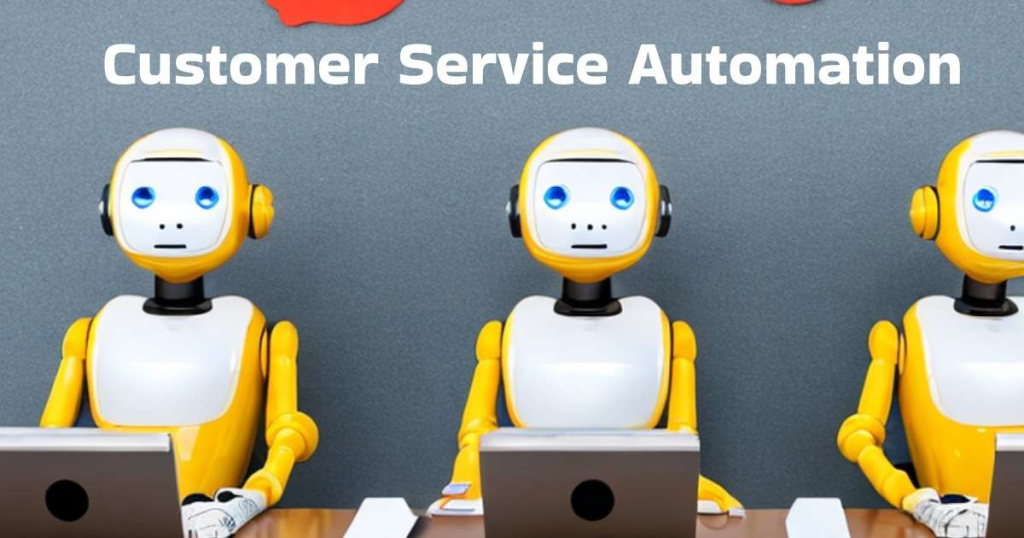As Marketing Manager, I’ve seen firsthand the transformative power of AI in revolutionizing customer service. The days of long wait times, frustrated customers, and overwhelmed agents are fading fast, replaced by a new era of efficiency and personalized support. This shift is driven by intelligent AI customer service automation, a technology that’s not just improving customer experience, but also significantly empowering your support team.
Let’s delve into how AI is taking on the heavy lifting, allowing your human agents to focus on what they do best: building genuine connections with customers.

The Burden of Traditional Customer Service
Before AI, customer service often meant juggling countless inquiries across multiple channels – phone calls, emails, social media, and live chat. Agents spent significant time on repetitive, low-value tasks like answering frequently asked questions, resolving simple technical issues, and navigating complex internal systems. This resulted in:
- Long wait times: Customers faced frustrating delays, leading to dissatisfaction and potential churn.
- Agent burnout: The constant pressure of high call volumes and complex issues led to stressed and overworked agents.
- Inconsistent service: The quality of support often varied depending on the agent’s experience and workload.
- Missed opportunities: The focus on reactive problem-solving left little time for proactive customer engagement and relationship building.
AI: The Solution to Overburdened Customer Service Teams
Intelligent AI customer service automation tackles these challenges head-on. By automating routine tasks and providing agents with intelligent tools, AI empowers your team to deliver exceptional customer experiences. Here’s how:
1. 24/7 Availability and Instant Response:
AI-powered chatbots and virtual assistants are available around the clock, providing instant responses to customer inquiries. This eliminates wait times and ensures customers receive immediate assistance, regardless of the time zone or day of the week. This immediate response significantly boosts customer satisfaction.
2. Intelligent Routing and Prioritization:
AI algorithms analyze customer data and route inquiries to the most appropriate agent based on their expertise and availability. This ensures faster resolution times and improves the overall efficiency of your support team. Furthermore, AI can prioritize urgent cases, ensuring that critical issues receive immediate attention.
3. Self-Service Capabilities:
AI-powered knowledge bases and FAQs provide customers with self-service options, empowering them to find answers to their questions independently. This reduces the workload on your agents, allowing them to focus on more complex issues. Well-designed self-service portals can dramatically reduce the number of incoming tickets.
4. Personalized Support:
AI can analyze customer data to personalize interactions, providing tailored recommendations and solutions. This demonstrates a deeper understanding of customer needs and fosters stronger relationships. Generative AI tools even allow agents to craft personalized responses quickly and efficiently.

5. Enhanced Agent Productivity:
By automating routine tasks, AI frees up your agents to focus on high-value interactions, such as addressing complex problems and building relationships with customers. This increases agent satisfaction and allows them to handle a larger volume of cases efficiently. The result is a more engaged and productive team.
6. Data-Driven Insights:
AI collects and analyzes vast amounts of customer data, providing valuable insights into customer behavior, pain points, and areas for improvement. This information allows you to optimize your customer service strategy and proactively address potential issues. This data-driven approach allows for continuous improvement and refinement of your support processes.
7. Real-time Assistance and Guidance:
AI can provide agents with real-time suggestions and recommendations, guiding them through complex interactions and ensuring consistent service quality. This enhances agent knowledge and confidence, leading to better customer outcomes. Think of it as an intelligent assistant working alongside your human agents.
Customer Service Automation: Benefits and Examples – Yellow.ai
Beyond Automation: The Human Touch Remains Crucial
It’s essential to emphasize that AI is not meant to replace human agents; instead, it’s designed to augment their capabilities. While AI excels at handling routine tasks and providing instant support, the human touch remains invaluable for resolving complex issues, navigating emotionally charged situations, and building meaningful customer relationships. The most effective customer service teams leverage a hybrid approach, combining the efficiency of AI with the empathy and problem-solving skills of human agents.
Implementing AI: A Strategic Approach
Successfully integrating AI into your customer service strategy requires careful planning and execution. Start by identifying your key challenges and opportunities, selecting the right AI tools and technologies, and ensuring seamless integration with your existing systems. Employee training is crucial to ensure your team can effectively utilize AI-powered tools and maintain a human-centric approach to customer service. Remember, data privacy and security must be top priorities throughout the implementation process.

The Future of Customer Service is Intelligent and Human
In conclusion, intelligent AI customer service automation is not just a trend; it’s the future of customer support. By empowering your team with AI-powered tools, you can significantly improve efficiency, enhance customer satisfaction, and build stronger relationships. This is not about replacing human interaction, but about augmenting it, creating a more effective and satisfying experience for both your agents and your customers. Embrace this technology, and watch your customer service soar.



